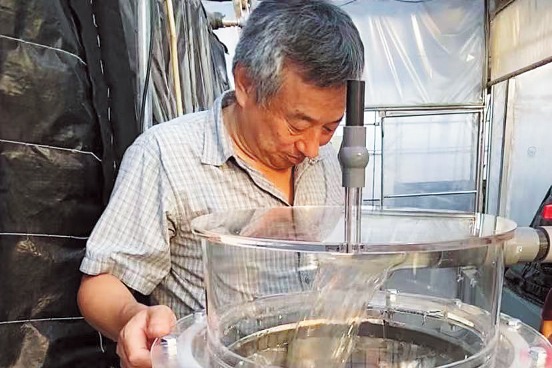Scientists call for healthy, sustainable region specific dietary plans

For the first time, Chinese scientists have proposed establishing sustainable, healthy dietary models that are unique to each region in China. The models are expected to play a significant role in improving people's dietary habits and promoting environmental sustainability.
A research group led by Liu Yan and Xia Min from the School of Public Health at Sun Yat-sen University in Guangzhou, Guangdong province, recently published a research paper in Nature Food, a renowned international food journal, titled "Adoption of Region Specific Diets in China Can Help Achieve Gains in Health and Environmental Sustainability."
The study, based on the dietary habits, environmental resource characteristics and economic development levels of China's regions, established a localized sustainable and healthy dietary plan called the Region Specific Reference Diet.
"It guides residents in various regions to have sustainable diets and provides practical and feasible solutions for achieving the goals of building a 'Healthy China' and sustainable development," Liu, an associate professor at the school, told China Daily.
Brent Loken, global food lead scientist for the World Wildlife Fund, highly praised the study and published a special review titled "Healthy and Sustainable Diets Must Be Culturally Acceptable Too" in the same issue of the journal.
Loken believes the study not only provides a practical and feasible way for China to achieve a healthy and sustainable dietary transformation, but also provides an important reference for developing countries, including India and Kenya, that can help them achieve sustainable dietary pattern transformation based on their local dietary cultures, Liu said.
A reasonable diet is a comprehensive concept that ensures nutritional needs and promotes human health, she said. It contributes to the sustainable development of the Earth's resources, meets cultural standards and is affordable, while an unreasonable diet may not only have a negative impact on health, but may also harm the environment and fail to live up to cultural demands.
Unreasonable diets are one of the main causes of disease worldwide, leading to approximately 11 million premature deaths annually and accounting for nearly one-fifth of all deaths around the world.
Such diets have also caused serious damage to the Earth's resources and the environment. The global annual greenhouse gas emissions related to food has reached 17.3 billion metric tons, accounting for over one-third of all anthropogenic greenhouse gas emissions.
According to the latest Global Burden of Disease database, more than 3 million people die due to improper diets in China every year, accounting for approximately 20 percent of the nation's deaths annually.
"This data highlights the serious impact of unreasonable diets on public health," Liu said.
In China, the death rate of people who have cardiovascular diseases caused by unreasonable diets is about 58 percent, while cancer deaths from the same cause are about 15.3 percent. Both rates rank first in the world.
"These statistics not only reflect the severity of dietary problems, but also warn us to take them seriously," Liu added.
Liu urged Cantonese people to reduce their consumption of processed and preserved meats and long-boiled soups with meat.
"Boiling meat soups and consuming cured meat are very popular in Guangdong, but they also pose health risks," she said. "Making soups is an indispensable part of Cantonese cuisine, often using various ingredients to enhance the flavor. But processed meat often contains high levels of salt and additives, and long-term consumption may lead to health problems such as high uric acid and cardiovascular disease."
Liu noted that Guangdong's food culture also includes a rich variety of vegetables and aquatic products such as fresh fish and tofu.
"These ingredients are not only nutritious and contain a large amount of vitamins and minerals, but are also beneficial for cardiovascular health," she said.
Liu said the Mediterranean diet is widely regarded as a healthy dietary pattern in the West, with a core emphasis on consuming abundant fruits, vegetables, whole grains, fish and olive oil.
"This diet not only ensures a balanced nutrition, but also provides a variety of essential nutrients that contribute to overall health," she said, adding it could also help lower cholesterol and protect cardiovascular health.
But Western fast foods, including burgers, french fries and pizza, contain too much sugar, salt and saturated fat, which have serious negative impacts on health and increase the risk of obesity, diabetes and cardiovascular disease, she added.





































